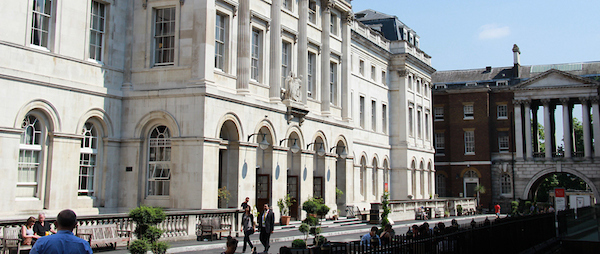In-and-out: A Nigerian-American’s Exploratory Ethnic Immersion in London


When I departed for my semester abroad at King’s College London (KCL), I had a feeling that I would be diving into an ethnic experience that would be difficult to articulate. On one hand, I would be travelling to the UK through an American study abroad program, but I knew through research and conversations with people who had previously studied abroad that most exchange programs have historically not had many students of color. At the same time, however, I knew that by choosing London my study abroad experience would not be one in which I would be an obvious outsider. London is one of the world’s most multicultural cities, and a huge portion of the city’s black population is of Nigerian descent. With this in mind, along with having direct family members living in London, I knew that I would be able to “blend in” as a fellow Western-hemisphere-born-and-raised Nigerian. But I wondered, how would I actually feel on arrival?
Arrival
To be frank, my initial thoughts about the demographics of a UK study abroad program were accurate. I was the only black American male in my IFSA KCL Orientation Week group of about 30 students, and only met one other during a KCL study abroad mixer the following week. I didn’t take this with spite, especially since it was only further confirmation of what I was expecting. With classes starting the next week, I began to think about how my ethnic identity would play out in my interactions with local English students throughout the semester; I wondered whether they would assume I was Black British (and therefore likely Nigerian) before I opened my mouth. After placing my unequivocally American accent, would they assume a certain black American experience of me that they could’ve inferred through media exposure? I also considered whether they would assume my experience to be similar to the Black British experience due to my Nigerian heritage, but only time could tell.
Interactions
I found that the non-black KCL British and EU students with whom I became acquainted saw me as one of the many Americans at their school for the semester. Their questions for me about home were mostly along the lines of, “How do you feel about Donald Trump?” and “Is uni over there really like in the movies?” The black KCL students also quickly acknowledged my Americanness, but there were different conversations to be had. I remember an instance in which I dropped my KCL ID card at the school gym and the student employee on shift, a Black Brit, made the comment “I knew from your name that this had to be a brother.” The quick ethnic recognition was such a sharp shift from what I was used to back in the States, and made me feel at home. Similarly, I attended a party put on by the KCL African and Caribbean Society and felt the same familial vibe. I found myself joking around with local students about how strict African parents were on us as kids. In these spaces, I was not an obvious foreigner, and could have passed for one of them.
Realizations
Beyond similar appearances and cultural upbringings, I came to realize that there were many facets to life on which Black Americans and Black Brits could not relate. For starters, the very particular slang that is used throughout London, predominantly among the city’s black population, is virtually unintelligible to the untrained ear. Even when I did start getting the hang of the lingo, no amount of “big man ting’s” or “wahgwan’s” could disguise my very American accent. On a more serious note, I came to learn that most pertinent issues facing London’s black community were very specific to British society. I happened to be studying abroad during a year in which knife crime would reach a ten-year high. I was very cognizant of the fact that this societal issue disproportionately impacts London’s black community. I came to understand through conversations with locals, black and non-black, that stabbing rates had very much become analogous to the U.S.’s gun problems. In similar but distinct ways from what we know and see in the States, I got a sense of what some of the systemic disadvantages of Black Brits look like, and how they’re unfortunately perpetuated through stereotypes in British media. For example, the common Black Londoner dialect is largely considered “uneducated”, prompting many to code-switch to be respected in wider British society. Furthermore, many cultural tenets such as African and Caribbean languages and foods, along with Grime music, are sadly not always given the same respect as components of traditional white British culture.
Reflections
Meeting people with similar backgrounds certainly helped me feel like less of a alien in a foreign land, but I learned to take the differences as lessons on the variety of experiences of the African diaspora. I entered my study abroad experience feeling like I knew more about the Black British experience than most of my peers, and I’m sure I did. However, my five months overseas revealed to me the greater picture of the issues that separation by the Atlantic Ocean secludes Americans from. I’m very grateful that I was able to bring what I learned from my friends across the pond back with me to the States. Now that I’ve been home for almost a year, who says I have to be in the UK to be a fan of grime music or discreetly drop some Black Londoner slang into conversation and hope people understand?
Paul O. | Economics and Statistics student | Rice University | King’s College London Partnership | Spring 2018